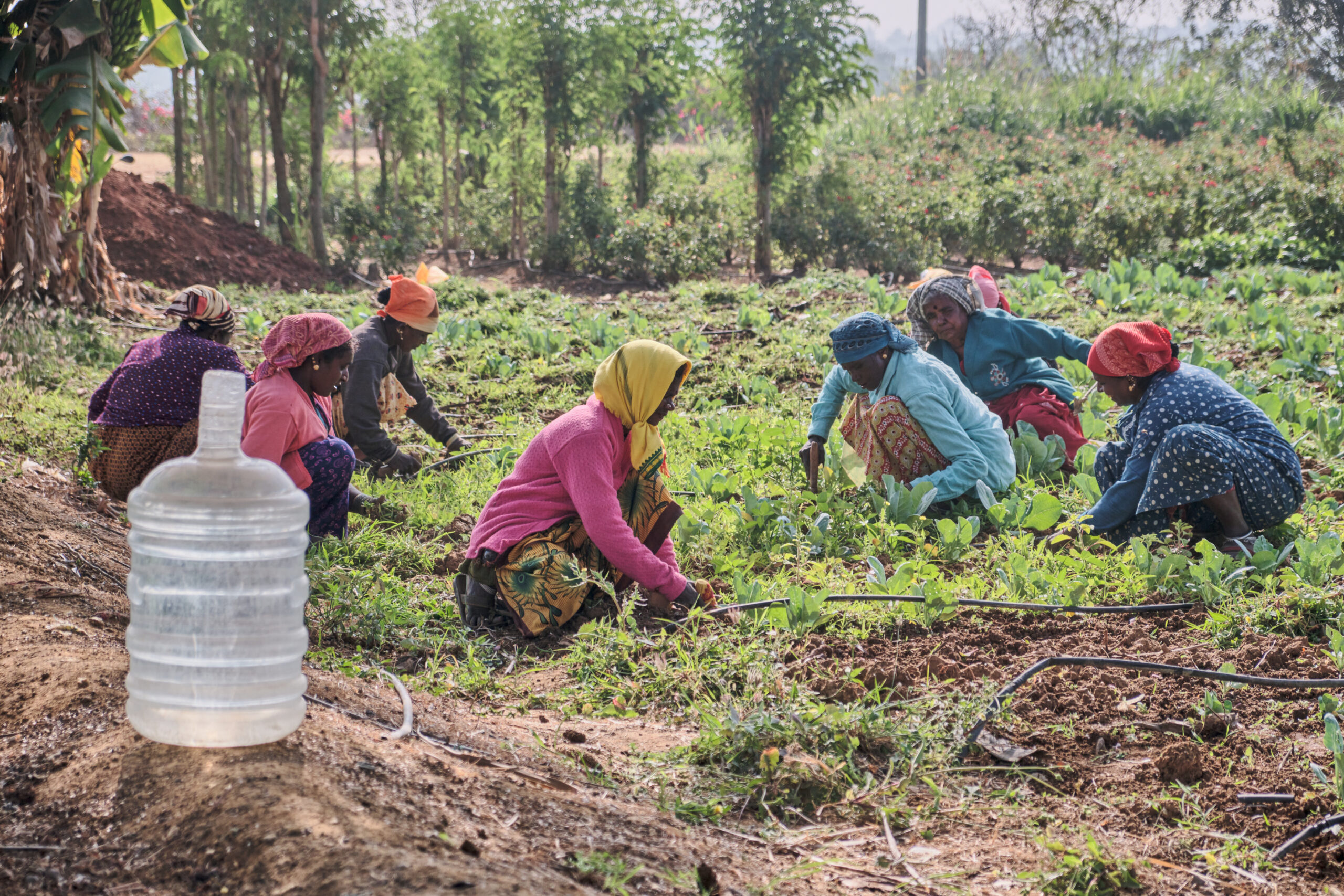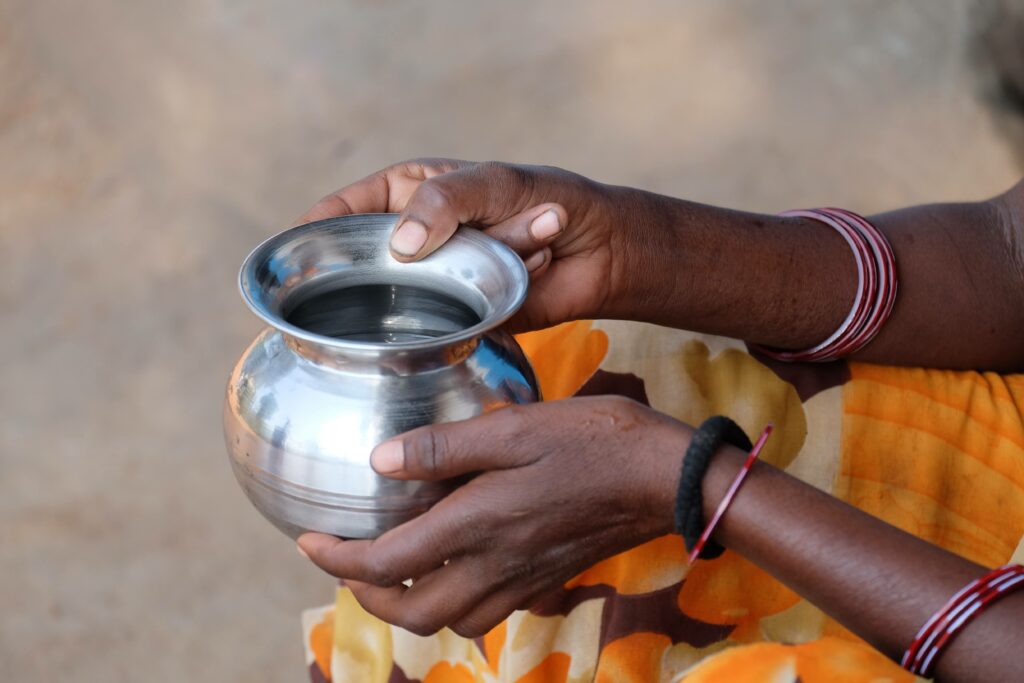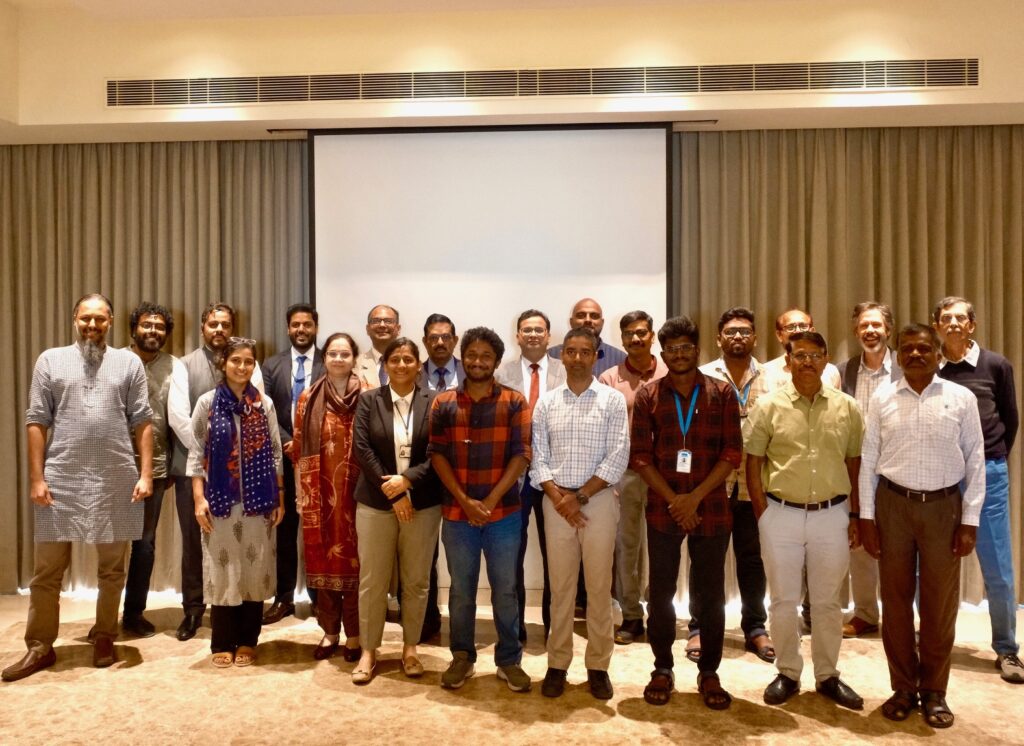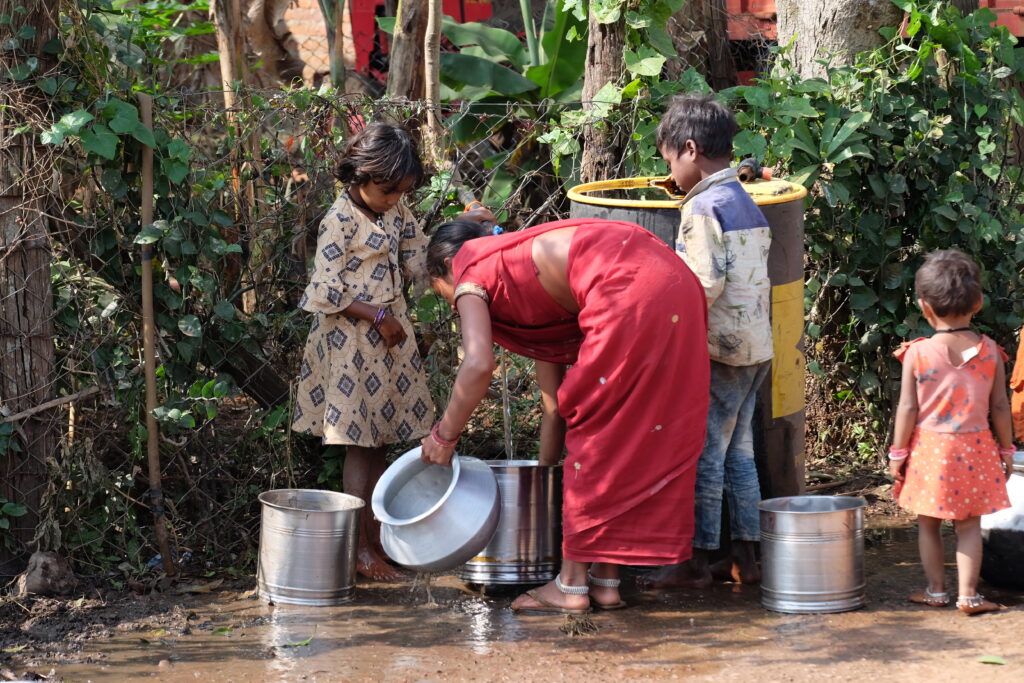Collective Action: The Sustainable, Peaceful Solution to the Water Crisis
Frank Water is convening partners in two watersheds in India to find sustainable and fair solutions to the water crisis through collective action. We’re performing micro-watershed modeling, identifying the most effective water resources projects and building new ways of working with government, the private sector and civil society.
Scale of the challenge
- India has 18% of the world’s population, but only 4% of its freshwater resources, making it among the most water-stressed in the world
- Water stress in India contributes to 200,000 deaths annually
- Industrial water demand in India is expected to increase from 56 billion cubic metres (bcm) in 2010 to 151 bcm by 2050
- India’s real estate market is expected to grow by 21.6% every year to 2023
India is facing a water crisis. The country has a very high reliance on groundwater both for drinking and irrigation, yet around half of India’s groundwater wells are declining due to abstraction rates exceeding the rate of recharge. Despite significant efforts to increase access to safe water, the combined effects of climate change, population growth, and poor governance create a challenge to water security. So far, we have been working in Anekal and Sriperumbudur.

A map of our two current project locations
As urban peripheries grow, competition for limited water resources intensifies. Production facilities now compete alongside industrial users, farmers, and households. Combined with climate change, this competition threatens safe water access for the most vulnerable. Where there is competition, the weakest lose out.
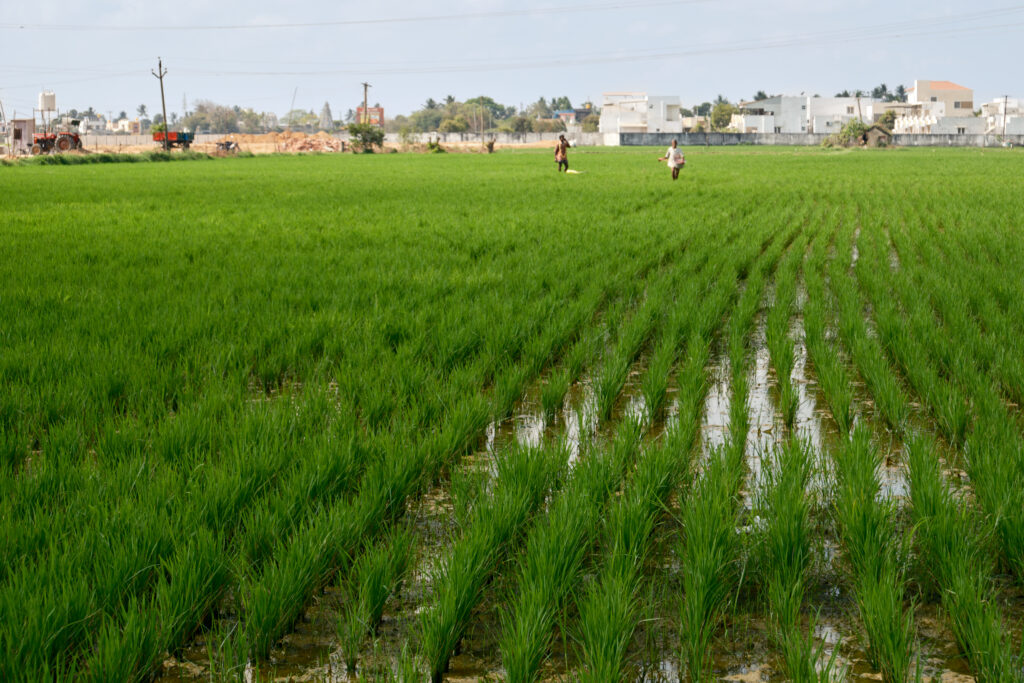
In Sriperumbudur small-scale agriculture is crucial for local livelihoods, alongside rapidly growing industry
For a water-secure future, we need stakeholders (key decision-makers and partners) to work collectively across their watersheds. Our programmes team and our partners have been working for almost two years in Anekal, outside the growing city of Belgaluru, and Sriperumbudur, outside Chennai, to generate a comprehensive hydrological model and recommendations for watershed interventions.
Key project activities are illustrated here:
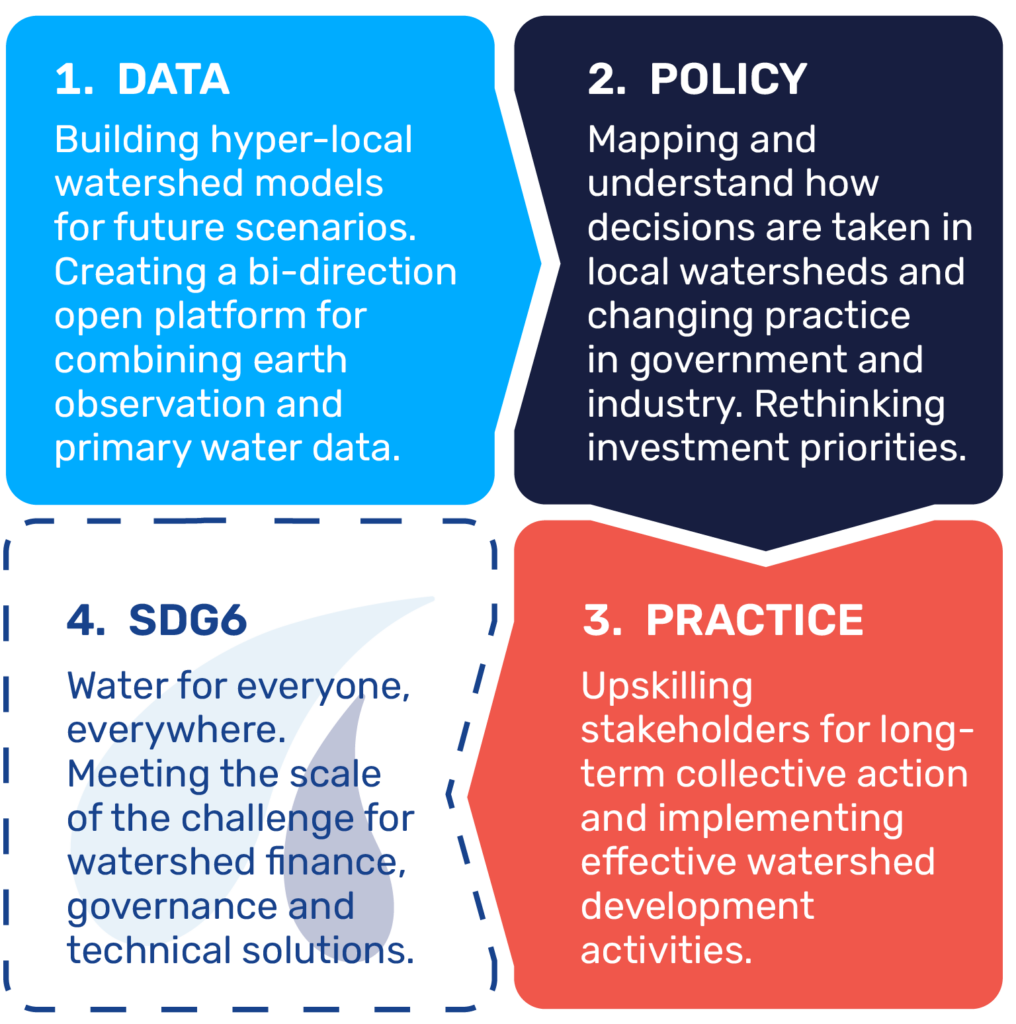
“Beyond the Boundary is bringing together global expertise in community development and hydrology to create new ways of managing water. Sharing knowledge on good water management is one of the ways that we can reduce the impact of climate change and the global water crisis. Watersheds on urban peripheries are typically hotly contested between multiple stakeholders competing for abstractions. Corporate entities are powerful actors in these areas, and fairness and justice in resource allocations can be lacking. These areas suffer for a lack of coordination, information asymmetry and ineffective regulations when in comes to groundwater resources”
Jon Shepherd, Head of Programmes & Funding at Frank Water
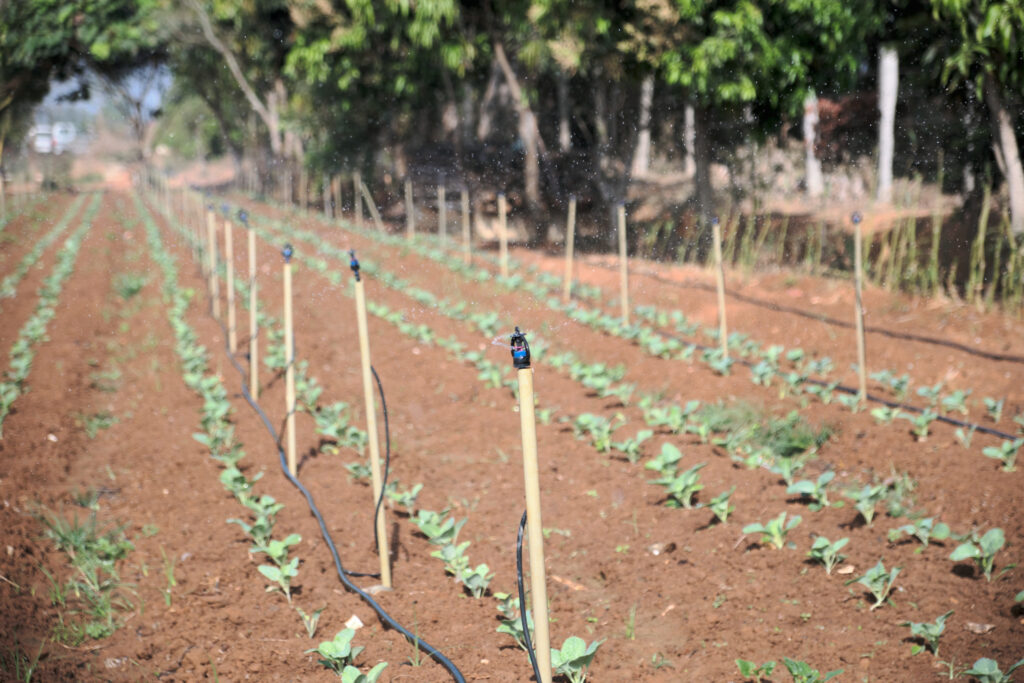
Irrigation systems in Anekal and Sriperumbudur are the largest consumers of water in the respective watersheds
Project Outcomes
Through Beyond the Boundary, we’re working for the long-term. By sourcing sustainable fundings streams and building a deep understanding of our watersheds we want to make a demonstrable difference to people’s lives. For the first team, we are working with corporate production sites to look beyond their site boundaries and improving the lives and livelihoods of those in peri-urban areas. Planned outcomes for the project are:
Outcome 1: Stimulating Collective Action
Our primary outcome is stimulating collective action and facilitating all stakeholders as water stewards in their watersheds and river basins. By this, we mean that stakeholders from all sectors have the right tools, knowledge, experience and motivation to work individually and collectively to improve watershed conditions for all.
Outcome 2: Just Water Allocations
Our additional outcome is just water allocations. Eliminating poverty and creating thriving communities demands sharing limited resources in a just and sustainable manner. At a time of expanding industrial demand, those most vulnerable to the effects of climate change will play an active role in this process as a crucial part of sustainable and just development.
Outcome 3: Reducing Business Risk
Our final outcome is reducing business risk and addressing corporate water reporting requirements. A thriving, sustainably-managed watershed facilitates thriving and sustainable businesses. Corporate supply chains rely on safe water, as do employees and their families. Governments are increasingly demanding more complex and comprehensive requirements to report against environment, social and governance (ESG) goals and we want businesses to have the tools and experience to report honestly, accurately and in line with internal and external values.
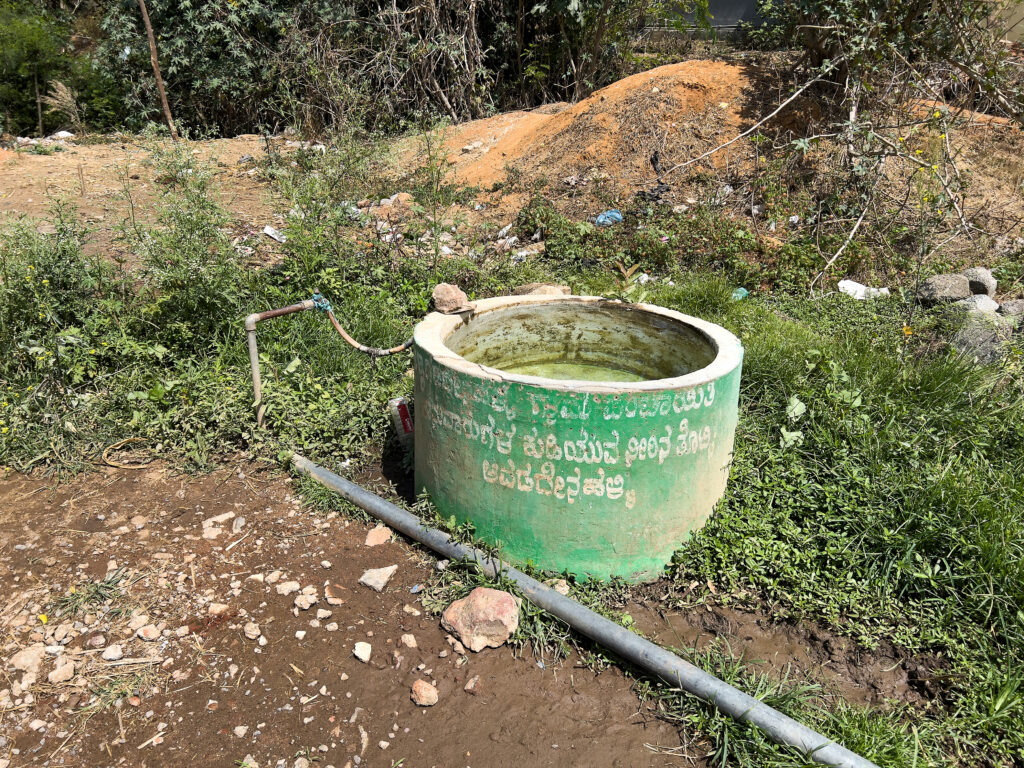
An adhoc water storage solution in a village in the project area
Project Documents
Explore deliverables produced as part of the project here:
- Marketing Leaflet
- BtB 1 (2022-2023) Recommendations Report
- BtB 2 (2023-2024) Review of ESG Reporting Requirements
- BtB 1 Data Portal
- BtB 1 Data Portal User Guide
Insights: Anekal
Anekal, with a population of 700,000, is rapidly urbanising on the fringes of tech capital Bengaluru (Bangalore). The city has faced chronic water shortages, impacting both the booming industrial sector and everyday people both in the city and in the rural surroundings. Our work has highlighted the risk of water scarcity and a fragmented institutional framework ill-suited for urbanisation. We’ve already restored a pond and check dam and are seeking partners to scale up efforts with business, civil society, and government.
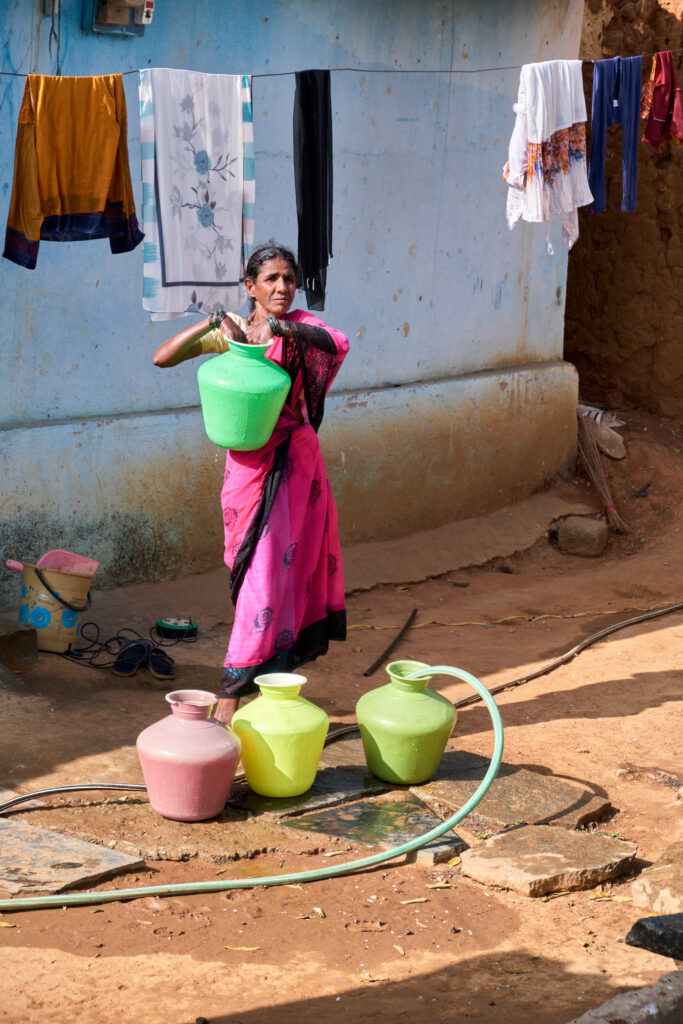
A woman resident collecting water in Anekal
Insights: Sriperumbudur
Sriperumbudur, with a population of 500,000, is experiencing rapid industrial growth in Tamil Nadu. While not as headline-grabbing as Bengaluru, the area features large industrial and residential complexes alongside small-scale farmers. Our findings indicate critical water issues in several sub-watersheds, with farmers heavily reliant on bulk water supplies and inefficient irrigation techniques. We are refining our insights in the field and have built a strong network of local stakeholders.
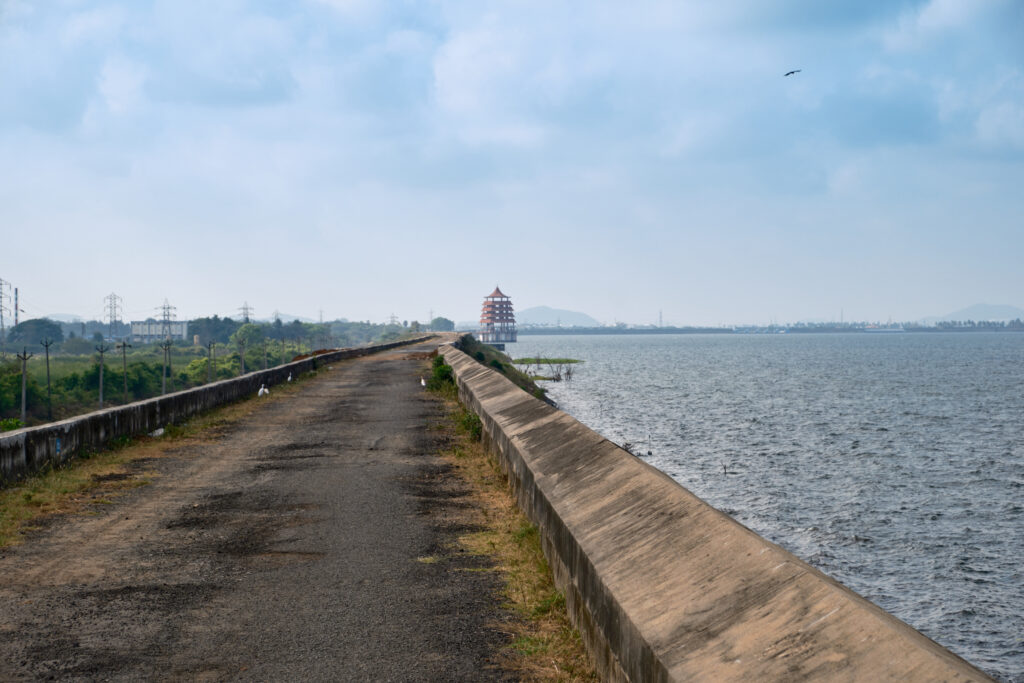
A view of the eastern line of the bund around Chembarambakkam Lake in Sriperumbudur

